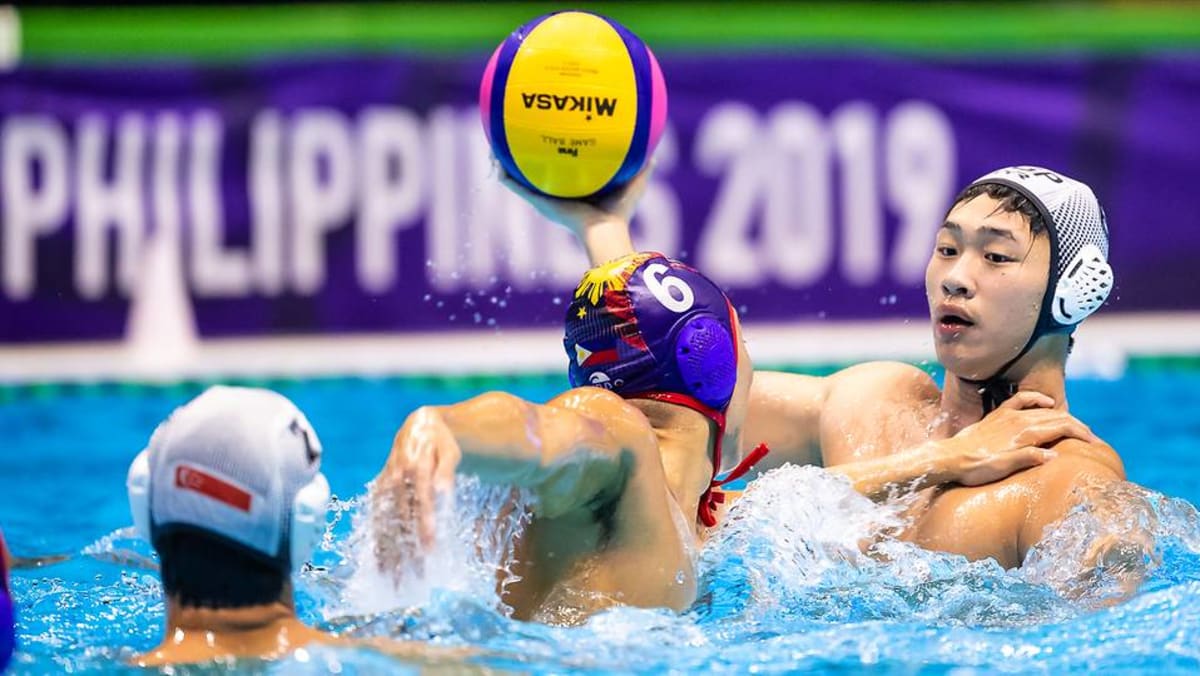
SINGAPORE: There is a “good chance” of the national men’s water polo team competing in the World Aquatics Water Polo World Cup Division 2 in May, its captain said on Monday (Mar 20), ahead of a qualifying tournament that will take place on Wednesday.
Their chances of progressing to the world stage in Berlin will depend on their ability to beat China in the “crucial” group stage matches of the Asian Water Polo Championships, said Lee Kai Yang.
Singapore will host the six-day tournament at the Singapore Sports Hub’s OCBC Aquatic Centre.
“Our toughest group stage opponent will most likely be China,” Lee told CNA938’s Asia First.
He noted that China has consistently won medals in the Asian games, except at the last edition in 2018.
“The team is a predominantly professional team, so we can expect that the team is very fit and they will want to keep pushing the pace of the game,” he said.
“We’ve played against the Chinese quite a number of times and we know that their team is filled with players with very large stature. So we know they play a very physical game.”
He added that since players with larger stature tend to play more of a static game, where they use their frame to pin down defenders in disadvantageous positions, the Singapore team has to be disciplined and remain mobile.
“But it’s definitely easier said than done. The players are going to have their work cut out for them,” he said.
“HIGHLY MOTIVATED” TEAM
When asked how he rallies the players to regain Singapore’s standing in the region, after coming in sixth at the 2018 Asian Games, Lee said they are “highly motivated to train for the team and to win for Singapore”.
He added that there is an emphasis on supporting the players outside of the pool, to help them better juggle their responsibilities.
This includes keeping in touch with school administrators and employers of team members and reminding them that they are doing their part in the journey of the team, he said.
“We’ve been there before. We know the sacrifices that have to be made, balancing work for the working adults … and then there’s also balancing that with all our family commitments, and then finally committing to a rather punishing training schedule.”
He added that the support of the athletes’ families is important for morale.
